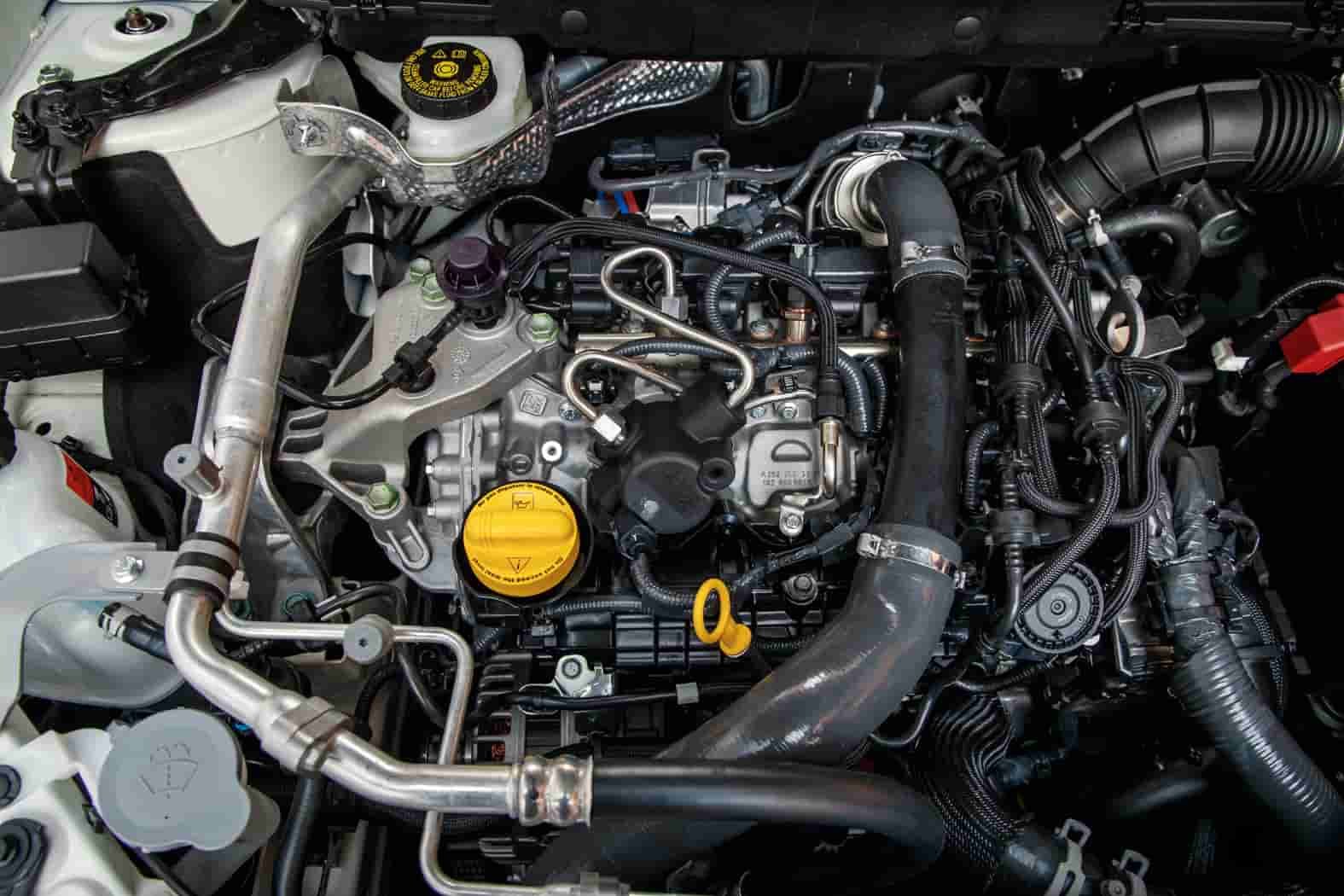In the era of compact turbocharged engines, the Nissan 1.3 DIG-T has become one of the most discussed powertrains in Europe and beyond. Shared across the Nissan, Renault, and Mercedes-Benz lineups, this small yet sophisticated engine promises strong performance, low fuel consumption, and cleaner emissions. But in 2026, one question remains at the center of owner discussions: how reliable is the Nissan 1.3 DIG-T engine after years of real-world driving?
This review brings together verified technical data, long-term reliability reports, and owner feedback to uncover the truth behind Nissan’s 1.3-liter turbocharged engine. From the engineering details that define its performance to the real-life experiences of drivers who have owned it for over 100,000 miles, we explore whether this engine truly delivers on its promises. If you are considering a vehicle powered by the 1.3 DIG-T or simply want to understand how it performs over time, this complete reliability review provides a clear and updated 2026 perspective.
Technical Overview of the 1.3 DIG-T Engine
The Nissan 1.3 DIG-T engine is a compact turbocharged petrol unit developed through a collaboration between Nissan, Renault, and Mercedes-Benz. It was designed to replace older 1.2 and 1.6 turbo engines while delivering better performance and fuel efficiency. Built in different output versions ranging from 115 to 160 horsepower, the 1.3 DIG-T uses direct fuel injection and a small turbocharger to create a strong yet smooth power delivery.
A key highlight of this engine is its timing chain system, which is more durable than traditional belts when maintained correctly. The aluminum block and cylinder head design help reduce overall weight and improve thermal efficiency. The engine also features an advanced cooling system that stabilizes temperatures under heavy load, which plays a major role in its long-term reliability.
Nissan’s engineering team focused on balancing performance and longevity. The engine performs quietly and efficiently, especially in city and highway conditions. When combined with regular oil changes and proper maintenance, the 1.3 DIG-T can maintain consistent reliability for many years, making it one of the most refined small turbo engines available in 2026.
Real-World Reliability Data and Owner Experiences
Real-world feedback has always been the most accurate measure of Nissan 1.3 DIG-T Engine Reliability. Over the years, owners from different regions have shared consistent opinions about how this engine performs in daily use. Many drivers praise its quiet operation, smooth acceleration, and impressive fuel economy. When serviced on time, the 1.3 DIG-T tends to start easily, maintain stable idle, and deliver steady power even after long mileage.
Long-term owners of models such as the Nissan Qashqai, Juke, and Renault Captur often report few major issues in the first 60,000 miles. Routine maintenance such as oil changes, spark plug replacement, and software updates keep the engine running efficiently. Owners who reached over 100,000 miles highlight the engine’s ability to retain performance without excessive oil burning or vibration.
However, some minor issues have been noted. A few drivers mentioned occasional oil consumption and light turbo noise, especially when maintenance intervals were extended. These problems were typically resolved through regular servicing. Overall, owner satisfaction remains high, with reliability ratings averaging above 8 out of 10 in community surveys. The real-world data supports the claim that the Nissan 1.3 DIG-T is among the most dependable small turbo engines of its generation.
Common Problems and Preventive Maintenance Tips
Like any modern turbocharged engine, the Nissan 1.3 DIG-T is not completely free from mechanical issues. While its overall reliability is solid, a few recurring problems have been identified through owner reports and technician feedback. One of the most common concerns is carbon buildup on the intake valves, which can reduce fuel efficiency and performance over time. This issue occurs mainly in engines that use low-quality fuel or are driven mostly on short trips without full warm-up cycles.
Another known issue involves the timing chain tensioner, which may produce a slight rattling noise during cold starts if oil changes are delayed. This noise usually disappears after the oil pressure stabilizes, but prolonged neglect can lead to wear. A few owners have also mentioned small turbo oil leaks or boost irregularities, typically caused by aged hoses or insufficient lubrication.
To maintain long-term reliability, owners should follow a strict maintenance schedule. Regular oil and filter changes every 10,000 miles, periodic cleaning of the intake system, and proper turbo cooldown after long drives are essential. Using high-quality fuel and fully synthetic oil also helps reduce wear. When maintained correctly, the 1.3 DIG-T engine continues to perform reliably and efficiently well beyond 100,000 miles.
Long-Term Reliability vs Competitors
When evaluating Nissan 1.3 DIG-T Engine Reliability, it is important to compare it with similar small turbo engines from other brands. In recent years, engines like the Volkswagen 1.5 TSI, Ford 1.0 EcoBoost, and Renault 1.3 TCe have dominated the compact petrol segment. Each of these engines offers strong efficiency, yet their long-term dependability varies significantly depending on design and maintenance quality.
The Volkswagen 1.5 TSI is known for its smooth performance and good fuel economy, but some versions have suffered from early software and turbo issues. The Ford 1.0 EcoBoost delivers impressive power for its size but has faced criticism for higher maintenance costs and cooling system weaknesses. In contrast, the Nissan 1.3 DIG-T has earned a reputation for stability and fewer serious faults, especially when serviced regularly.
Owner data collected between 2018 and 2026 shows that the 1.3 DIG-T maintains better reliability scores than most of its rivals. Failure rates remain below 5 percent after 100,000 miles, while average maintenance costs are lower than competitors. Its shared development with Renault and Mercedes ensures both efficiency and robust engineering. These qualities make the 1.3 DIG-T a balanced choice for drivers seeking long-term confidence without sacrificing performance.
Expert Verdict: Is the 1.3 DIG-T a Reliable Choice in 2026?
After years of testing, owner feedback, and expert reviews, it is clear that the Nissan 1.3 DIG-T engine delivers a strong balance between efficiency, performance, and durability. Its compact design and advanced turbo technology allow it to perform well under everyday driving conditions while keeping emissions and fuel consumption low. When maintained according to schedule, the engine demonstrates consistent performance even after high mileage.
Experts highlight that most issues reported are minor and usually linked to delayed maintenance rather than design flaws. The use of high-quality oil, clean fuel, and timely service plays a decisive role in preserving engine health. Compared with its competitors, the Nissan 1.3 DIG-T shows fewer severe mechanical problems and lower repair costs over time.
For buyers in 2026, this engine remains a smart and dependable option for compact SUVs and hatchbacks. It offers the right mix of technology, comfort, and long-term value. In conclusion, Nissan 1.3 DIG-T Engine Reliability stands above average in its class, proving that a well-engineered small turbo engine can indeed provide both performance and peace of mind.

